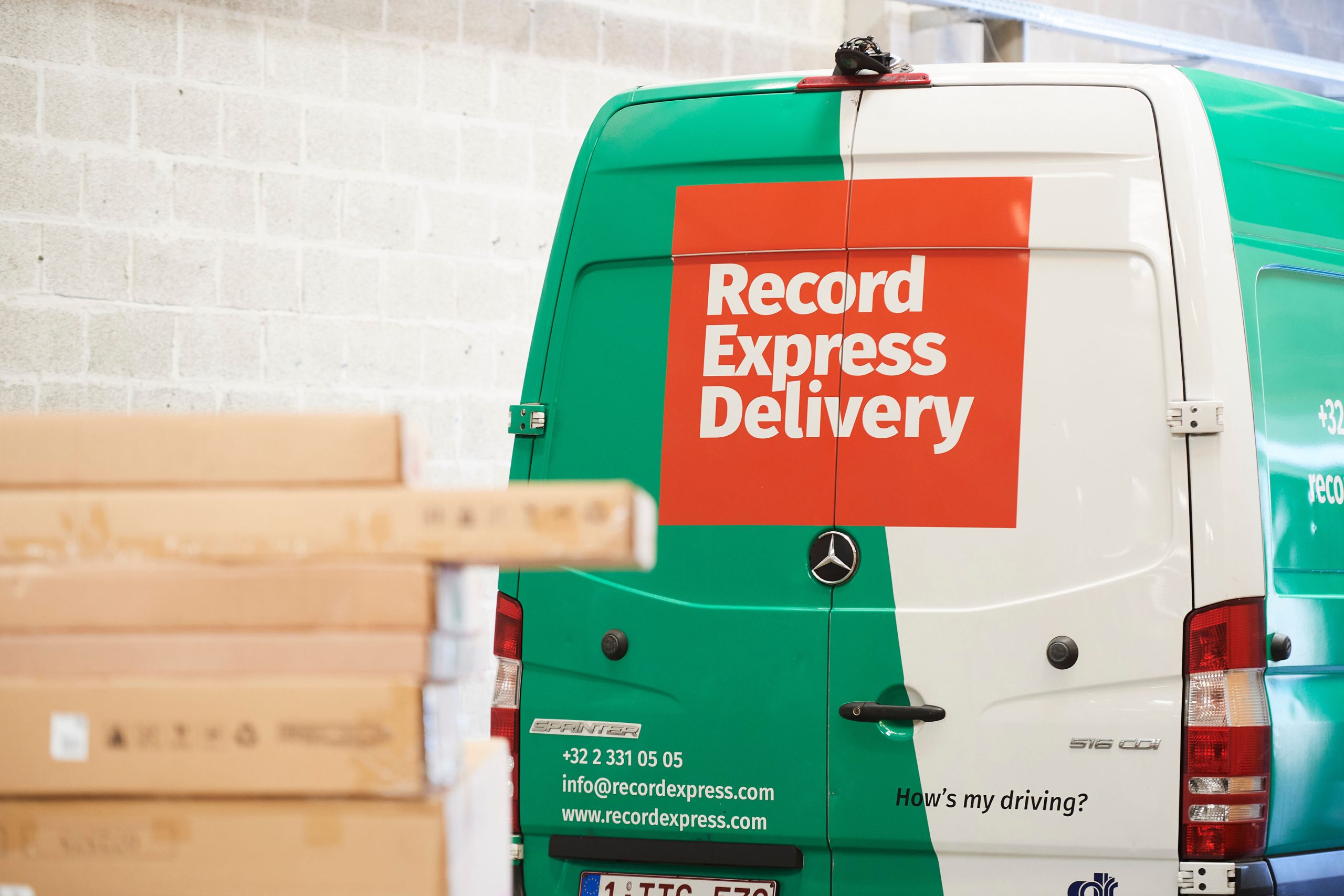Top Challenges in Furniture Logistics (and How to Overcome Them)
How to overcome the top furniture logistics challenges in Belgium. SEND PARCELHome / Our Business Areas / Industry /

Furniture logistics challenges in Belgium revolve around urban access, damage prevention, failed deliveries, sustainability pressure, and reverse logistics.
Retailers can solve them with better packaging, route optimisation, time-slot deliveries, green fleets, and data-driven tracking.
Record Express addresses all five through own-fleet control, Home+ scheduling, and LEZ-compliant routes across Belgium.
Related reading:
Furniture Delivery Guide ·
Damage Prevention Best Practices ·
Sustainable Furniture Logistics ·
Insurance & Liability in Furniture Logistics
Why is furniture logistics more complex than parcel delivery?
Direct answer: Furniture is bulky, fragile, and requires manual handling—creating higher operational risk, lower route density, and complex coordination with customers.
Unlike parcel logistics, every furniture shipment is unique in shape and value. It often requires two-person teams, vehicle tail-lifts, pre-arranged time slots, and site access checks.
In Belgium’s city centres, narrow streets and parking restrictions compound these challenges.
Each missed delivery increases cost and damages brand perception, so the process must balance speed, safety, and service quality.
Common cost drivers
- Two-person handling and loading time
- Urban access delays and limited parking
- Vehicle cube inefficiency for irregular items
- High first-attempt failure costs
Challenge 1: Preventing damage during transport and delivery
Direct answer: Damage occurs from poor packaging, rushed loading, or insufficient padding. Using professional materials and handling SOPs keeps claims below 0.5%.
Damage prevention starts with packaging standards—double-wall cartons, corner guards, moving blankets, and ratchet straps.
Record Express trains its teams to inspect access paths before moving items and uses padded tail-lifts for heavy goods.
Each delivery is photographed at pickup and drop-off to ensure accountability.
| Cause | Impact | Solution |
|---|---|---|
| Unprotected edges | Chips, scratches on wood or veneer | Corner protectors and blankets |
| Load shift in transit | Internal cracks or broken joints | Straps and anti-slip mats |
| Tight staircases | Scuffed walls and damaged packaging | Access checks and two-person lift |
Challenge 2: Managing urban deliveries and access restrictions
Direct answer: Belgian low-emission zones (LEZ) and limited parking make routing critical. Plan EV or compliant fleets, pre-book access windows, and use micro-hubs for staging.
Brussels, Antwerp, and Ghent all restrict high-emission vehicles.
Retailers must ensure their carriers operate LEZ-approved fleets or risk fines and lost delivery slots.
Record Express routes EVs and smaller vans into these zones daily and stages loads at suburban hubs for efficient final-mile runs.
Urban delivery strategies
- Use EV vans or biofuel trucks for LEZ compliance
- Plan morning routes to beat congestion
- Pre-book parking and building access permits
- Stage bulky items at local depots for shorter trips
Challenge 3: Reducing failed deliveries and no-shows
Direct answer: Missed deliveries waste fuel and time. Real-time SMS alerts, time-slot booking, and live ETAs can cut failure rates by over 30%.
Furniture requires the customer to be present, so visibility and communication are essential.
Record Express’s Home+ system sends SMS confirmations and 30-minute ETAs.
Crews verify access conditions ahead of time, lowering the risk of last-minute cancellations or inaccessible addresses.
| Factor | Why it matters | Best practice |
|---|---|---|
| Time-slot booking | Ensures customer availability | Offer 2–3 hour delivery windows |
| SMS + live ETA | Builds transparency and trust | Send reminders morning of delivery |
| Photo POD | Protects against false claims | Capture photo before signature |
Challenge 4: Meeting sustainability expectations
Direct answer: Consumers and B2B partners expect carbon transparency and eco-efficient operations. Fleet electrification, route optimisation, and reusable packaging deliver measurable results.
Belgium’s Green Deal and EU regulations push logistics operators to prove emission reduction.
Record Express holds an EcoVadis 59/100 rating and continuously expands its EV fleet.
Using micro-hubs, optimised routing, and reusable packaging reduces carbon footprint while maintaining service quality.
Sustainability levers
- Deploy EVs in city cores
- Train drivers in eco-driving techniques
- Use blanket wrap instead of single-use plastic
- Consolidate orders by postcode to cut empty miles
Challenge 5: Handling returns and reverse logistics efficiently
Direct answer: Returns can add 10–15% to total logistics costs. Streamlined reverse flows, inspection procedures, and reconditioning reduce waste and recover margin.
Returned furniture often needs inspection, repackaging, or minor repairs before resale.
Record Express provides same-driver pickup of refused or damaged items and returns them to hubs for sorting and triage.
Integrating reverse logistics with delivery routes prevents half-empty return legs and supports sustainability.
| Step | Goal | Execution tip |
|---|---|---|
| Inspect and document | Identify repair vs replace | Photo evidence at pickup |
| Repack for storage | Prevent secondary damage | Use reusable blankets and crates |
| Route back efficiently | Minimise mileage | Combine with next-day delivery loops |
Challenge 6: Managing data and performance KPIs
Direct answer: Without reliable KPIs, improvement stalls. Track on-time rate, first-attempt success, damage rate, and emissions per delivery to drive accountability.
Record Express provides transparent dashboards and regular reports to business clients, highlighting service quality and sustainability metrics.
Aligning data with compensation or SLA incentives keeps operations continuously improving.
Essential KPIs
- On-time delivery ≥ 98%
- Damage rate ≤ 0.5%
- First-attempt success ≥ 95%
- Emission per stop reduction year-over-year
Talk to Record Express about fleet optimisation, packaging, and performance benchmarking.
FAQ
What is the biggest cause of furniture delivery failures?
Missed appointments and access issues. Using time slots and pre-delivery SMS reduces first-attempt failures by up to 30%.
How do you handle deliveries in low-emission zones?
Record Express operates compliant vehicles and EVs in Brussels, Antwerp, and Ghent, scheduling deliveries around city restrictions.
How can retailers reduce damage claims?
Train crews, standardise packaging, and capture photo POD at pickup and delivery. Most claims come from preventable handling errors.
Sources & Further Reading
- Brussels Capital Region – Low Emission Zone
- European Commission – Green Deal
- Record Express – Eco-Friendly Last-Mile
- Record Express – Furniture Delivery Guide

Record Express was awarded a 59/100 score by EcoVadis, the global leader in sustainability ratings.